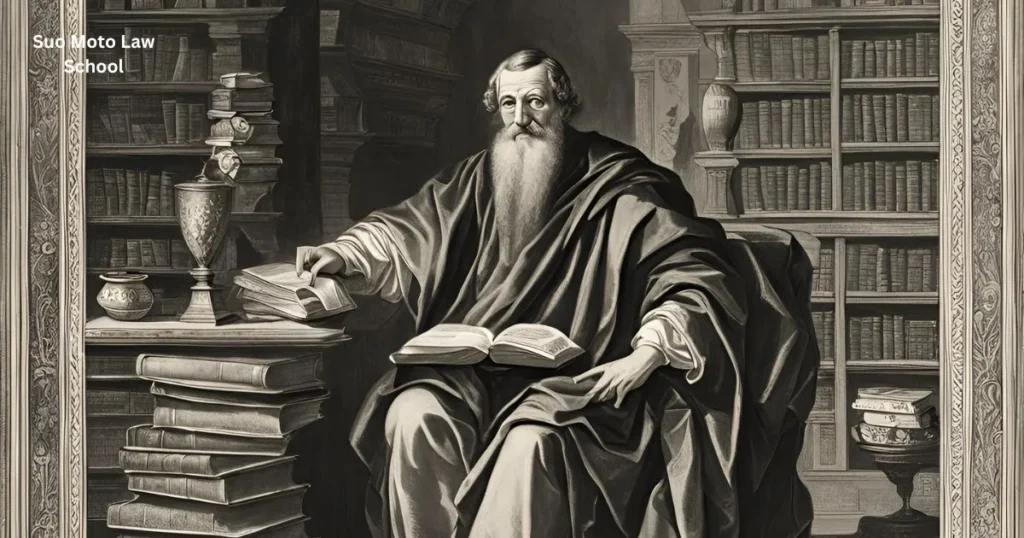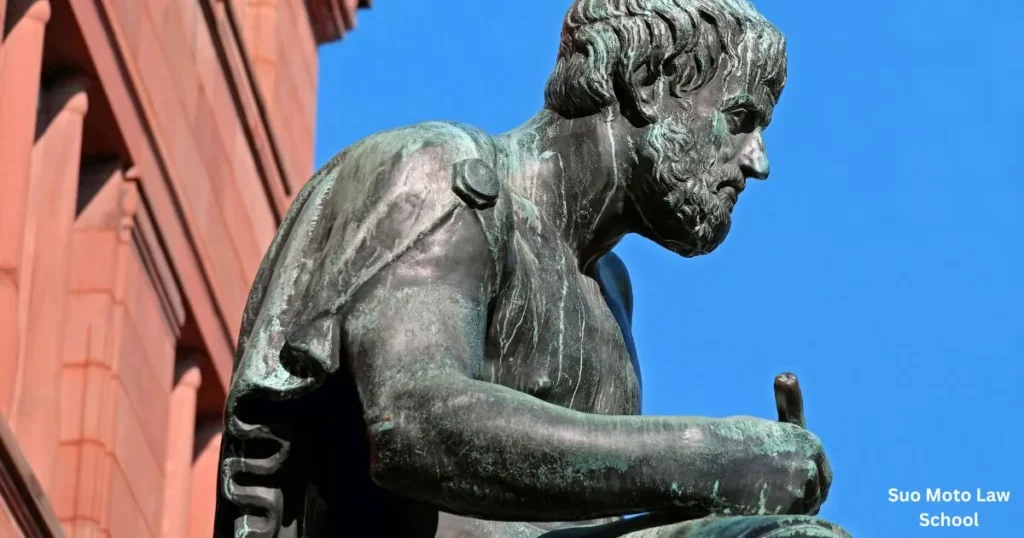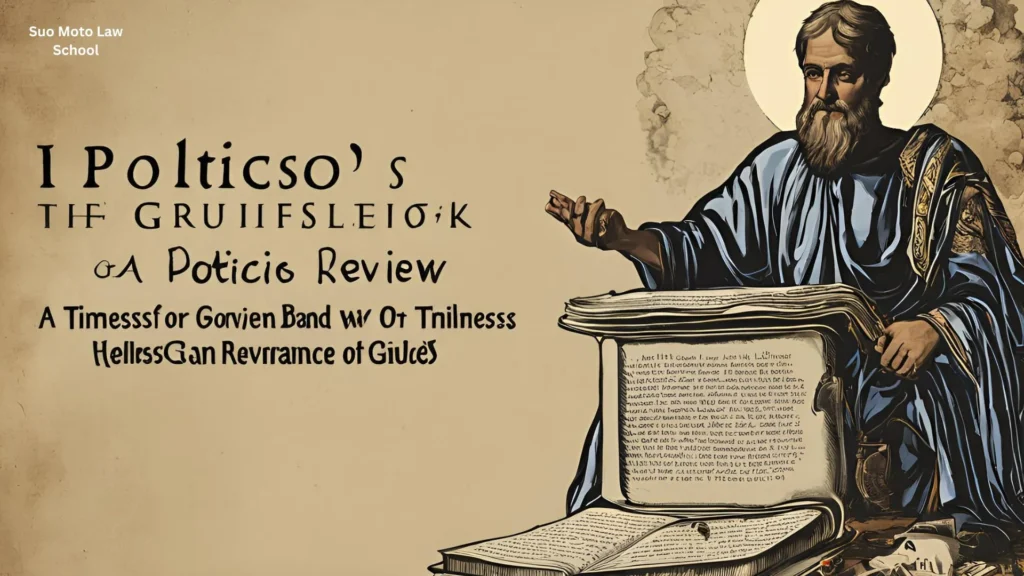Aristotle’s politics is a cornerstone of Western political philosophy. This book has discussed governance, ethics, and human nature for over two millennia. Written around the 4th century BCE, this magnum opus reflects Aristotle’s deep inquiry into the structures of society and the state’s role in ensuring its citizens’ well-being.
While politics was written in the context of ancient Greek city-states, its insights remain strikingly relevant today. The book offers profound reflections on power, justice, and the responsibilities of governments, making it a must-read for anyone interested in political theory, governance, or philosophy.
In this review, we will explore the central themes of Aristotle’s Politics, its structure, its historical significance, and why it continues to captivate readers and thinkers alike.
The Purpose of the State: Aristotle’s Vision of Governance
At its core, Aristotle’s Politics explores the question: What is the purpose of the state? For Aristotle, the state exists not merely to enforce laws or protect property but to cultivate the virtue and happiness of its citizens. He famously described humans as “political animals,” emphasizing that humans thrive in organized communities and that the state is a natural extension of human social life.
Aristotle believed that the ultimate goal of the state is to achieve the good life—a life of moral and intellectual excellence. Unlike his mentor Plato, who idealized a utopian society ruled by philosopher-kings, Aristotle took a more pragmatic approach, focusing on how real-world states can achieve stability and justice.

Key Themes in Aristotle’s Politics
The Nature of Citizenship
One of the most intriguing sections of Politics is Aristotle’s discussion of citizenship. Who is a citizen? What responsibilities come with citizenship? For Aristotle, a citizen is someone who participates actively in the political life of the state. This excluded many groups—women, slaves, and non-landowners—from political engagement in Aristotle’s time, a limitation that reflects the social norms of ancient Greece.
However, Aristotle’s broader point is timeless: citizenship is not just a legal status but a moral and civic responsibility. Good citizens must contribute to the state not just through obedience to laws but through active participation in governance.
Classification of Governments
Aristotle famously categorized governments into six types, divided into three “good” forms and their corresponding corruptions:
- Monarchy (rule by one) can degrade into tyranny.
- Aristocracy (rule by the few, based on merit), which can devolve into oligarchy.
- Polity (rule by the many, for the common good), which can decline into democracy, which Aristotle viewed as mob rule.
Interestingly, Aristotle regarded polity as the most stable and desirable form of government, emphasizing a balance of power between the rich and the poor. His analysis of political structures and their vulnerabilities offers insights that remain applicable to contemporary political systems.
The Role of Virtue in Politics
Aristotle’s politics is deeply intertwined with his ethical philosophy. He argues that a state’s success depends on the virtue of its citizens and rulers. A state that prioritizes justice and fairness fosters a virtuous society, while one that prioritizes wealth or power leads to corruption and instability.
The Family as the Foundation of the State
Aristotle begins Politics with a discussion of the household, arguing that it is the basic unit of the state. He sees the family as a microcosm of the state, governed by relationships of authority and subordination—such as husband and wife, parent and child, and master and slave. While some of his views on gender and slavery are outdated and reflect the biases of his time, his broader point about the interconnection between private and public life remains relevant.
Structure and Style: A Practical Philosophy
Unlike Plato’s more abstract and idealistic style, Aristotle’s politics is highly analytical and empirical. The text is organized into eight books, each addressing different aspects of governance and society. Aristotle draws on his observations of Greek city-states, including Athens and Sparta, to provide real-world examples of political success and failure.
Aristotle’s method of argument is methodical. He often presents multiple perspectives before arriving at his conclusions, making politics not only a philosophical treatise but also a practical guide for rulers, lawmakers, and citizens.

Strengths of Aristotle’s Politics
- Timeless Relevance: Despite being over two thousand years old, politics addresses universal themes such as justice, power, and community that continue to resonate today.
- Balance of Idealism and Pragmatism: Aristotle’s approach is rooted in practical observation, making his insights applicable to real-world governance.
- Focus on Ethics: By linking political success to virtue and morality, Aristotle elevates politics from mere power struggles to a pursuit of the common good.
Limitations of Aristotle’s Politics
- Historical Context: Some of Aristotle’s views, particularly on slavery and the exclusion of women from political life, reflect the prejudices of his era and can feel outdated or unjust to modern readers.
- Idealized View of Polity: While Aristotle’s concept of polity is inspiring, its implementation in diverse, large-scale modern states can be challenging.
Why Should You Read Aristotle’s Politics?
Aristotle’s Politics is more than just a historical text—it’s a guide to understanding the principles of governance, human nature, and the delicate balance between power and morality. Whether you are a student of political science, a leader seeking wisdom, or simply a curious reader, politics offers profound insights that can help you make sense of today’s complex political landscape.
Aristotle’s nuanced approach reminds us that the purpose of governance is not merely to maintain order but to create a society where citizens can lead virtuous and fulfilling lives. In an era of political polarization, his emphasis on balance, compromise, and the common good feels especially urgent.
Conclusion
Aristotle’s Politics remains a timeless masterpiece that bridges the gap between philosophy and practical governance. Its enduring relevance lies in its exploration of fundamental questions about power, justice, and human nature. While some of Aristotle’s views are tied to the context of ancient Greece, his broader insights continue to offer valuable guidance for building virtuous and stable societies.
For anyone seeking to understand the foundations of political philosophy, Aristotle’s Politics is not just a book—it’s a journey into the heart of what it means to govern and to be governed.
